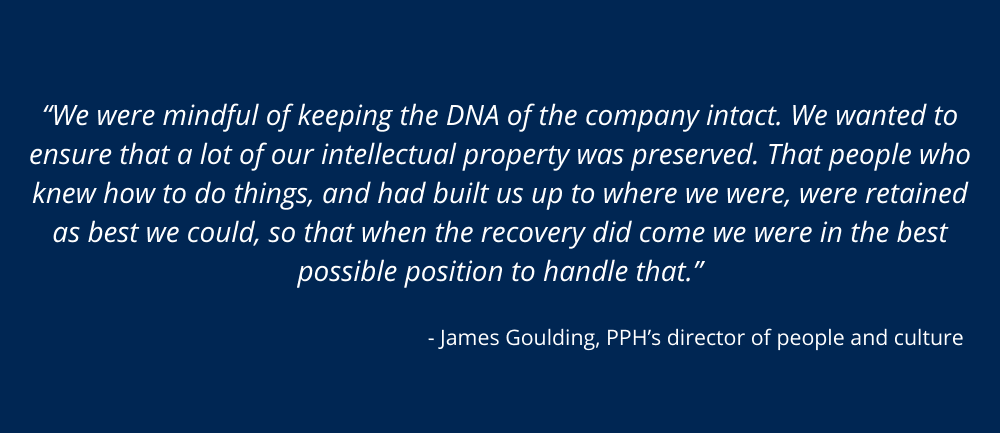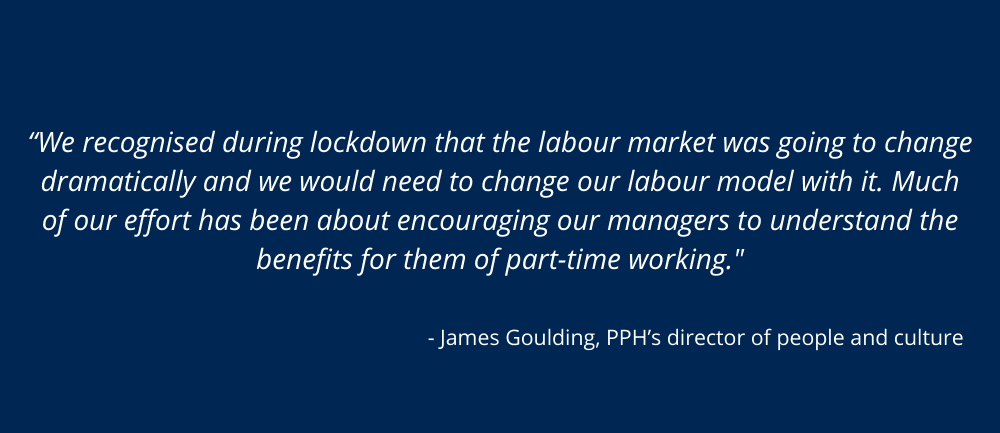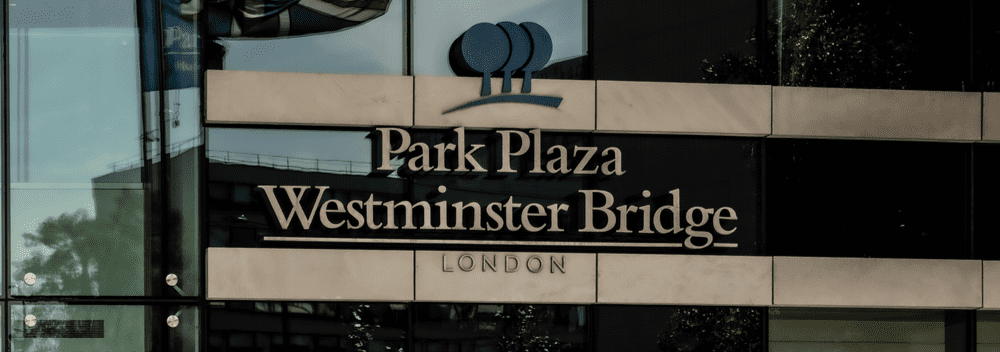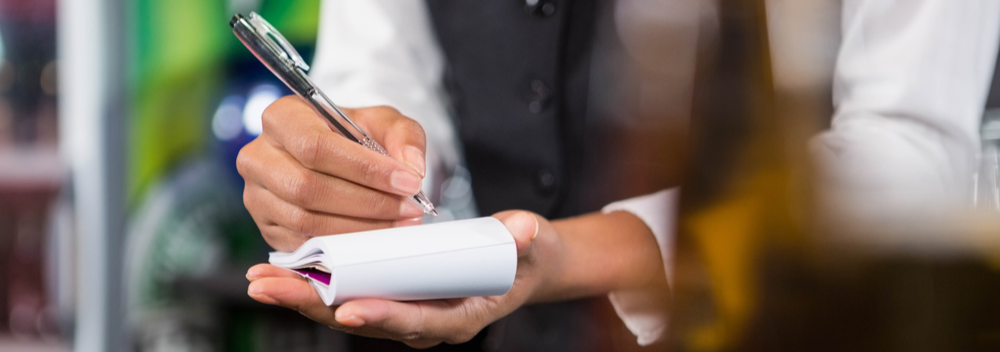-
Provided by

- Date published: Dec 14, 2021
- Categories
With premises in Waterloo, Westminster and the iconic County Hall, the Park Plaza Hotel Group (PPH) is one of London’s most recognisable hospitality brands. However Covid-19 has created unprecedented challenges, forcing the company to make significant redundancies and explore short-term working solutions.
Yet nearly two years into the pandemic, PPH is in remarkably good shape. It was recently named Best Employer of the Year at The Cateys, an industry awards ceremony run by The Caterer magazine, and the HR team has picked up its own specific award.
Here James Goulding, PPH’s director of people and culture, explains how he and his team have weathered the storm and emerged on the other side with an enlightened blueprint for work, one that provides different work patterns for individual staff members and rethinks the company’s approach to wellbeing.
Prior to the eruption of Covid-19, things were going brilliantly for Park Plaza Hotel Group. The business had expanded from its original strongholds in the UK and the Netherlands, opening hotels in Germany, Croatia, Serbia and Austria. The ventures in London were booming, and plans were afoot to expand into Shoreditch and Battersea Power Station.
Then… well we all know what came next. In the weeks after Covid-19 broke, turnover for the UK’s hospitality sector fell by around 75%. For PPH, the virus impacted all three profit sectors: bedrooms, food and beverage and meetings and events. In London, whose hotel market is disproportionally large even for such a vast city, the impact was particularly acute.
“We could only take it day by day,” James Goulding recalls of that early period. “There was so much uncertainty, and we could only take the decisions we took, based on the information we had at the time. For a long time things only got worse and harder. We thought we were going into this with a two-month hit and it’s been a lot longer than that.
“It was difficult, particularly when we were talking about closing hotels for periods of time. Hotel team members are very proud of what they do and had built long-term relationships with our customers.”
‘We’re trying to protect as much as possible’
Once the scale of the pandemic had become clear, James and his team switched their focus to managing the fallout for employees.
Redundancies were an inevitable consequence, as were reduced-time working arrangements. However, alongside these essential steps, the people leadership team also pursued secondment opportunities, an approach which would bear considerable fruit.
“I literally turned my recruitment team around and said ‘we’re basically trying to protect as much employment as possible.’” James says. “When supermarkets were looking for staff, we were ringing around saying ‘if we’ve got employees who’d be willing to do so to protect their employment, would you be willing to have them seconded to you.’ We had relationships with a few other employers where that worked.”
The secondment process had two goals: to allow the company to retain as many people as possible and enable staff to broaden their skillsets.
“We were mindful of keeping the DNA of the company intact. We wanted to ensure that a lot of our intellectual property was preserved. That people who knew how to do things, and had built us up to where we were, were retained as best we could, so that when the recovery did come we were in the best possible position to handle that.
“It was also about selling it as a positive, as an opportunity. For instance we worked with a London clinic on Harley Street, so we were able to say to people ‘ever worked in a healthcare sector before? No, well, they’re busy because of Covid. We’ve got a receptionist, they’re looking for receptionists, we’re looking to second some people over.”

Despite the uncertainty surrounding the Omicron variant, the UK’s hospitality sector has begun to move again, and this has allowed PPH to begin rehiring. In fact the company has managed to rehire around 40 staff, something which is particularly pleasing to James as it was something the company promised to do when the pandemic was at its height.
“When we said we would go back to people as soon as jobs became available again, we were able to do that,” James reveals. “We took some bookings in the early part of this year that were exclusively for our hotels and what that meant was we were able to get ahead of the market in terms of recruiting and go back to people who had sadly been made redundant.
“We approached over 100 people and rehired 30 or 40. It was satisfying to do what we said we’d do.”
However, the recruitment landscape has changed dramatically. With the entire leisure and hospitality sector looking to rebuild their staff rosters, even companies as glamorous as PPH are having trouble recruiting the right people. It’s an employer’s market out there, and those who hold skilled roles, such as chefs, are in particularly high demand (a problem Chester Zoo has itself had recently).

Meeting the challenge
To ensure the company is competitive in its space, PPH has completely reorganised its HR team. James and his colleagues have created dedicated Recruiter roles, with each Recruiter working on a different specialism. James says this has helped to both improve the candidate experience and compete better for talent in a very competitive environment.”
In parallel, the recruiters have poured considerable resources into their brand. As James puts it, they want to show potential what’s possible with PPH. Rather than advertising specific roles, they want to emphasise the wider benefits of working with the company, the opportunities it offers for promotion and to work in a genuinely multinational environment.
But no amount of glossy literature and ambitious rhetoric will cut the mustard if PPH does not offer a genuinely compelling employee experience. In a world that is now attuned to remote working and digital-first working practices, it’s no longer enough to simply talk the talk; companies have to demonstrate their commitment to progressive working goes beyond cliches and soundbites.
With this in mind, many of the emergency measures created during the pandemic have been prolonged. This doesn’t just provide continuity; it allows PPH to command the attention of post-pandemic candidates, notably Millennials who are looking for roles that bend and evolve with their needs.
PPH only considers flexible working on a case-by-case basis – given the nature of the operation, it simply isn’t an option for many people – but job-share, part-time and multi-role careers are now firmly entrenched.
Many existing staff members have returned on this basis. “When we were going through some consultation exercises we had a lot of counter-proposals when team members said ‘look, we’ll take a job-share’ which helped us protect a lot of employment.” James says. But it will be the reality for many new hires, too.

“We recognised during lockdown that the labour market was going to change dramatically and we would need to change our labour model with it. Much of our effort has been about encouraging our managers to understand the benefits for them of part-time working.
“It is understandable that they may be reluctant to employ part-time workers when it takes as many hours to train someone who works part-time as it does someone who works full-time. They don’t always see the ROI, and I get that.
“So we need to show them the benefits through improved retention, which is what we see in teams where we have high levels of part-time working. We also implemented a very simple approach that said we needed a business case to justify employing solely on a full-time basis, so we looked at it on a case-by-case basis.
“We are also a lot more open to team members working in more than one job with us, which ensures they get full-time hours as demand fluctuates between locations and so they stay with us.
“We removed Zero Hours Contracts several years ago to improve retention – we never thought we would see a time when demand reduced as dramatically as it did – but we have seen a lot more working across our hotels with team members doing more than one job with us at more than one location.”

In parallel, PPH has completely revamped its approach to employee wellbeing. The company recognises that staff have been through a hugely tumultuous period. Now, they want to repay the loyalty of their people.
Annual holiday entitlement has been increased by two days per person, while a loyalty bonus equivalent to two weeks’ additional pay has been introduced for those who remain in post after a year. But the changes go way beyond traditional forms of compensation; they are also evidenced in the new town hall meetings organised by general management, or the soon-to-be-launched forums which will allow junior hotel staff to share their opinions with James and PPH’s VP of operations. PPH wants to be more open and transparent than ever before, and ensure no employee is left to suffer in silence.
“We have trained a number of key leaders and HR team members to serve as Mental Health First Aiders for their locations,” James reveals. “This helps with early interventions and has also raised awareness of mental health issues generally and helped promote a culture of openness.
“We realised that when we were handling disciplinary and grievances issues that we were often dealing with behaviour that was the really just the manifestation of an underlying issue, so we have moved to include mediation much more in our processes and we try to involve the respective team member in the decisions we take with outcomes.
“We found that our employee assistance programme wasn’t really used or well known about, so we have undertaken a number of initiatives to raise awareness and uptake.”
It’s easy to downplay these changes. After all, companies everywhere are ramping up their mental health policies, right? With employees working more gruelling schedules than ever, it makes good business sense.
But the hospitality industry has long had a problem with mental health. Back in the 1990s, academic research showed that the industry was locked in a cycle of “shame, self-criticism and self-reassurance.” In 2017, surveys found that only 7% of the industry’s workforce felt comfortable discussing their wellbeing with their employer.
So these new policies matter. Not just for the people of PPH, but for the sector as a whole.

Proof in the pudding
It’s important to be cautious when gauging the results of the new ways of working. After all, James and his team don’t expect international travel to recover for months yet. They’ve held events for over 1,000 at Park Plaza Westminster Bridge, and half-term provided a big driver for domestic leisure, but the prospect of another lockdown – and another complete overhaul of working practice – continues to loom large.
However, the spate of awards that PPH has won in recent months suggest that, from an employee value perspective at least, the new, more versatile approach is bearing fruit – and then some.
“We are very proud of a number of the awards we have won recently, including the Best Employer in Hospitality,” James says. And although he is at pains to divert the praise towards individual managers – “without them, our employee experience would not be as good” – it is clear that these managers are operating in a finely tuned framework, creating the ideal springboard for success.
No-one knows what the next few months will bring, but Park Plaza Hotels has given itself the best chance of riding out the storm. And despite all those redundancies, all that heartache over the past 22 months, the company is in a more robust position now than it has ever been.
